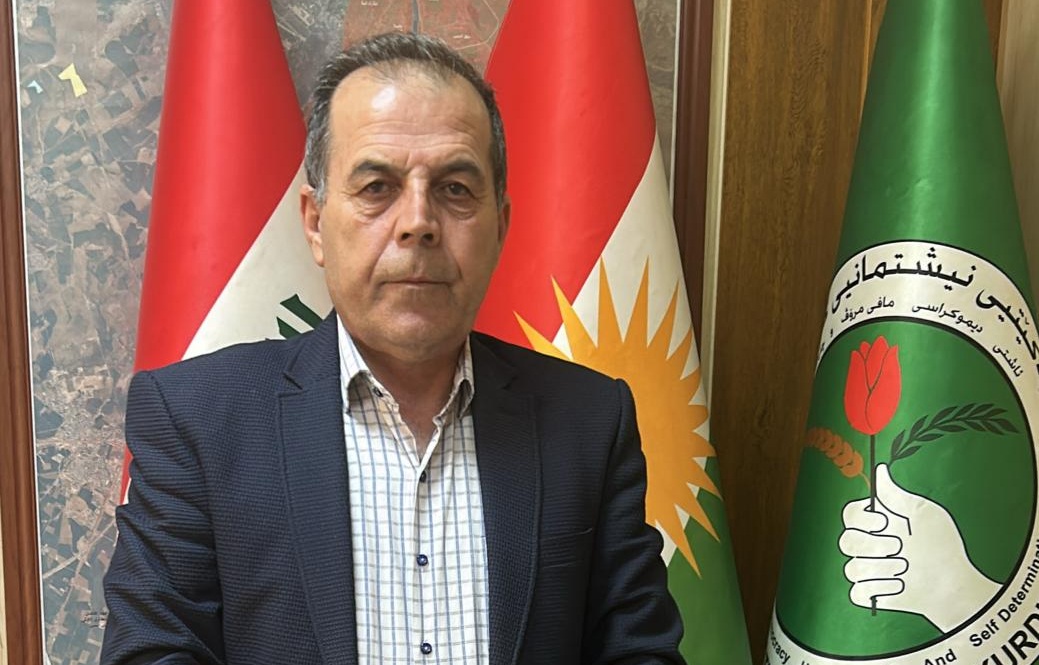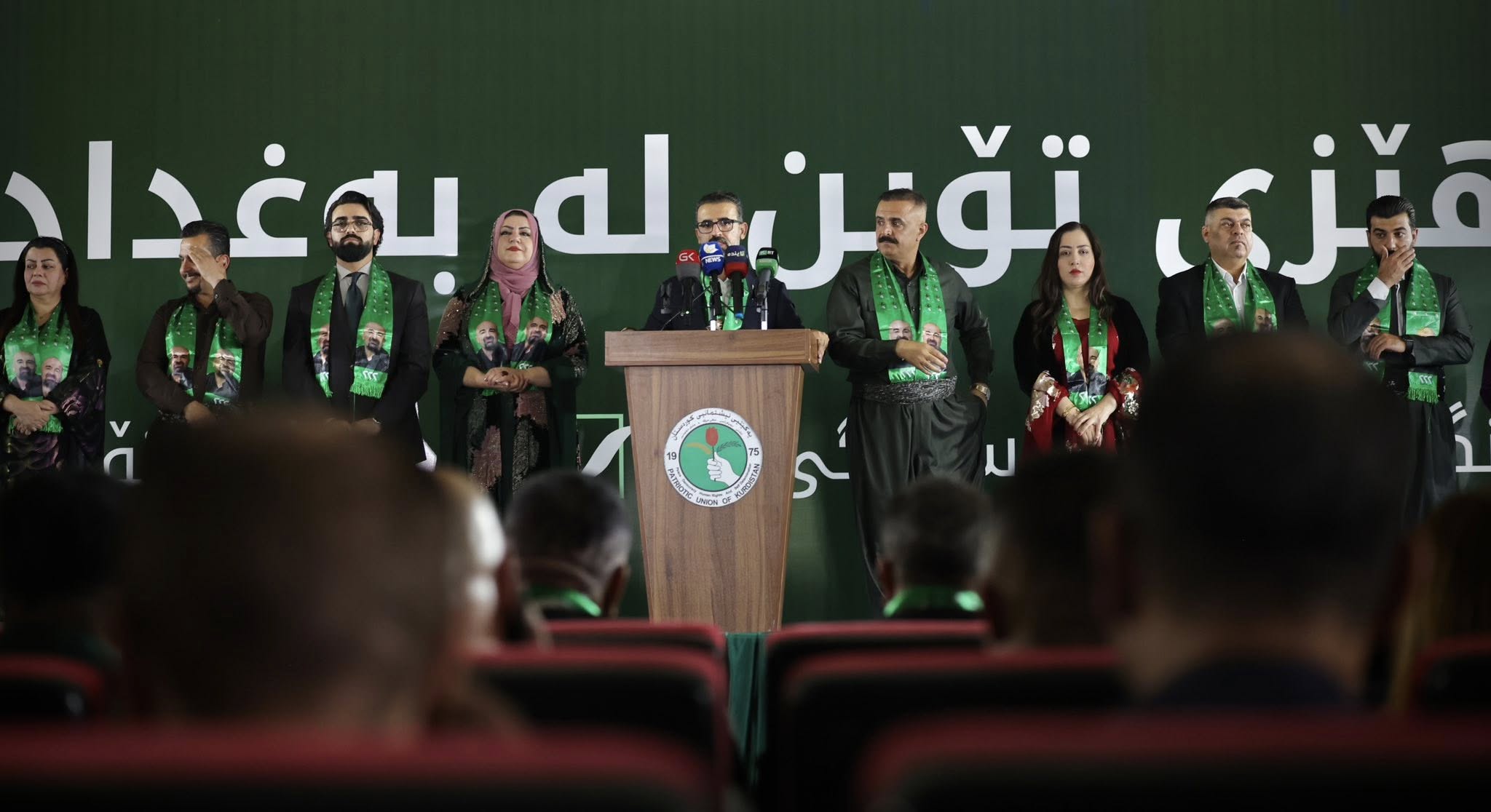The Patriotic Union of Kurdistan PUK’s Kirkuk Elections Office official expressed strong confidence in the party’s performance and its lead candidate, Governor Rebwar Taha.
Sherzad Samad Sharif, the senior official at the PUK Organizations Center in Kirkuk, stated that the party is determined for Taha, who heads the PUK electoral list in the province, to secure the highest number of votes not only in Kirkuk but across Iraq. He projected that Taha could obtain up to 100,000 votes in the Iraqi Council of Representatives elections scheduled for November 11.
Sharif emphasized that Taha’s candidacy serves two main goals: ensuring victory for multiple PUK candidates and highlighting Taha’s strong personal leadership. The PUK is aiming for a total of 200,000 votes in Kirkuk, he added.
According to unofficial figures from the PUK’s Central Elections Office in Kirkuk, roughly 10 percent of Kirkuk’s electorate—around 100,000 voters—currently live in the Kurdistan Region’s provinces. To encourage participation, the PUK has decided to provide transportation for these voters to return home to cast their ballots, regardless of party affiliation.
Calm Campaigns and Growing Support
“The campaign atmosphere in Kirkuk is calm and problem-free,” Sharif told KirkukNow. “The PUK has instructed its members and supporters to run peaceful campaigns and avoid confrontation with other parties.”
He noted that while loyal party voters have already made their decisions, many undecided citizens base their choices on tangible public services. According to him, the PUK’s record of fulfilling promises made during provincial elections will likely boost its vote count this time.
In previous provincial elections, the PUK received 157,000 votes, a 40 percent increase compared to the last parliamentary elections. Sharif now expects that number to reach 200,000 votes.
Fragmented Opposition and Seat Projections
Sharif expressed optimism that the PUK would translate its vote gains into five or six parliamentary seats, citing divisions among other groups.
“Arabs, who previously ran on two or three lists, are now participating with seven. The Turkmen are split among several Sunni and Shiite lists, and internal disagreements persist within the Turkmen Front,” he said. “The Sainte-Laguë system favors major parties like the PUK, which strengthens our position.”

Rebwar Taha’s Prominence
Asked about the focus on Rebwar Taha’s projected 100,000 votes, Sharif dismissed the idea that the emphasis sidelines other PUK candidates.
“Governor Rebwar Taha is widely respected and enjoys strong public support,” he explained. “Mr. Aso Mamand, the PUK’s top figure in Kirkuk, stands equally behind all candidates. Promoting Mr. Taha’s success benefits the entire list, helping secure additional seats while reinforcing his leadership image.”
Sharif stressed that each election in Kirkuk serves as an “indicator of Kurdish majority support” and as proof that the PUK remains the principal Kurdish representative in the province.
Regarding Taha’s future, Sharif noted, “He will serve wherever the party requires him—whether in Baghdad or Kirkuk.”
Participation of Kirkuk Voters in the Kurdistan Region
Sharif estimated that around 97,000 Kirkuk voters currently reside in Sulaymaniyah and Erbil, accounting for nearly a tenth of the province’s electorate. The PUK plans to assist their return on election day, continuing a tradition from previous elections.
“Our goal is simple,” he said. “Every Kirkuk resident should return and vote—no matter who they vote for.”
Kurdish Unity and Missed Opportunities
Addressing the absence of a unified Kurdish list, Sharif explained that efforts to reach an agreement with the Kurdistan Democratic Party (KDP) failed.
“The KDP linked the joint-list negotiations to the formation of the Kurdistan Region’s tenth cabinet, which complicated matters,” he said. “Had we participated together, the Kurds could have secured more seats.”
In conclusion, Sharif reaffirmed the PUK’s confidence in its performance, “Thanks to Governor Rebwar’s achievements and the trust of our supporters, we expect significant support not only from Kurdish voters but also from Arab and Turkmen communities. We are confident of winning five to six seats in Kirkuk.”





